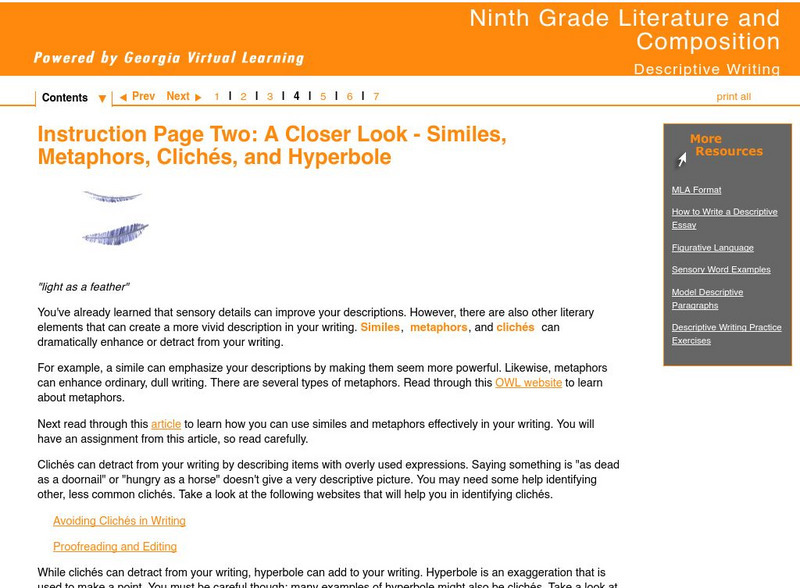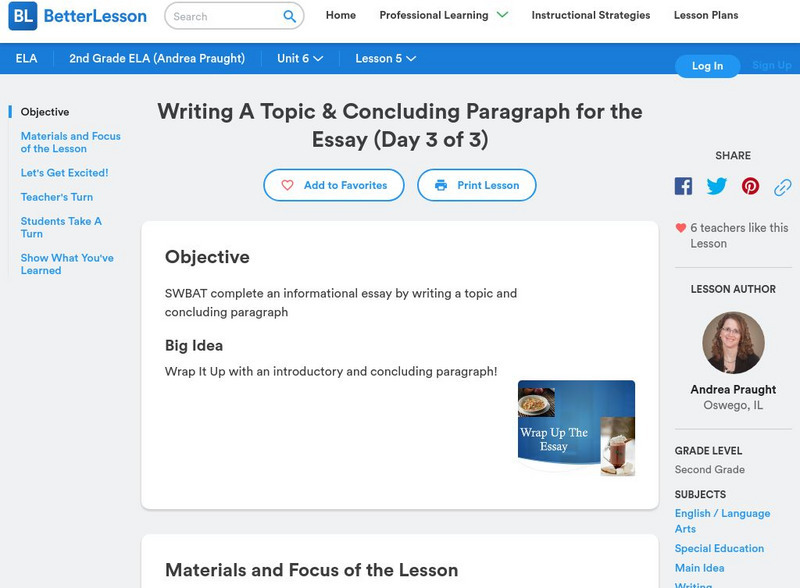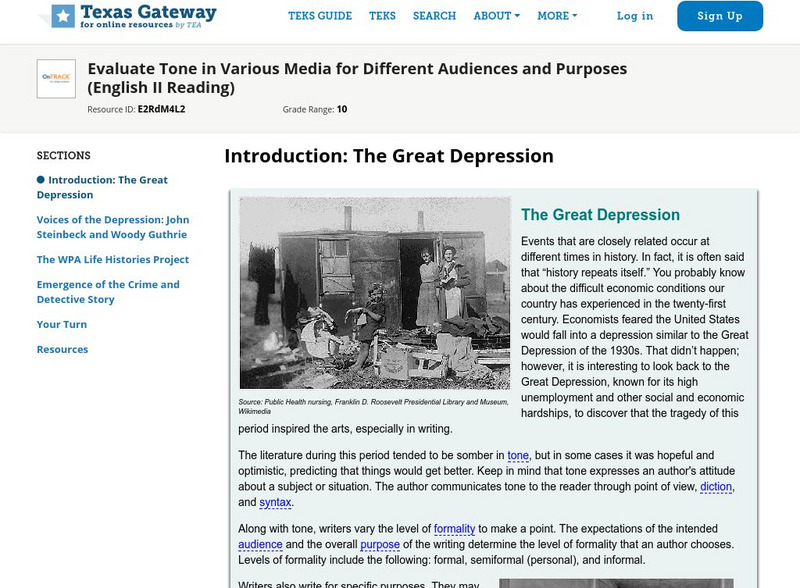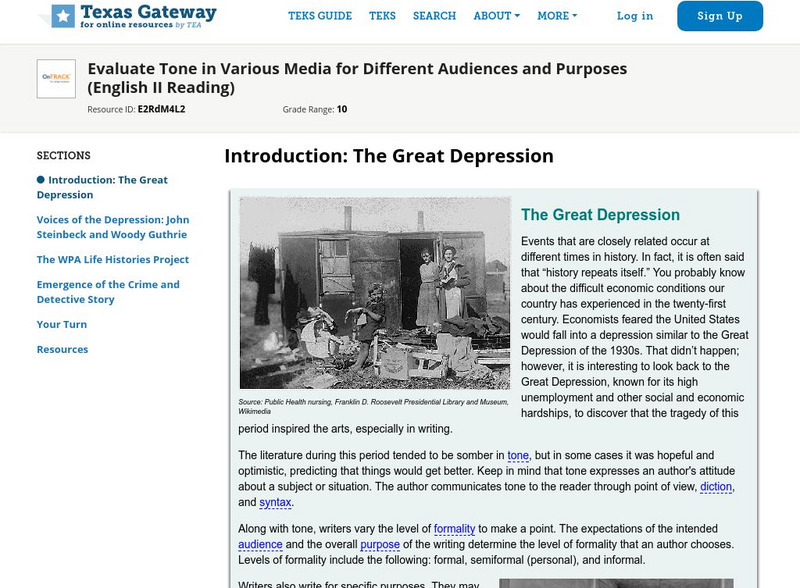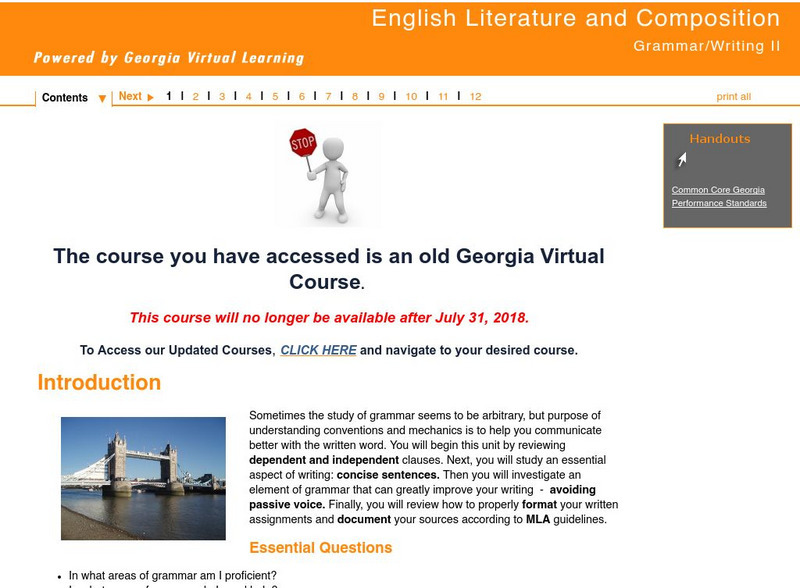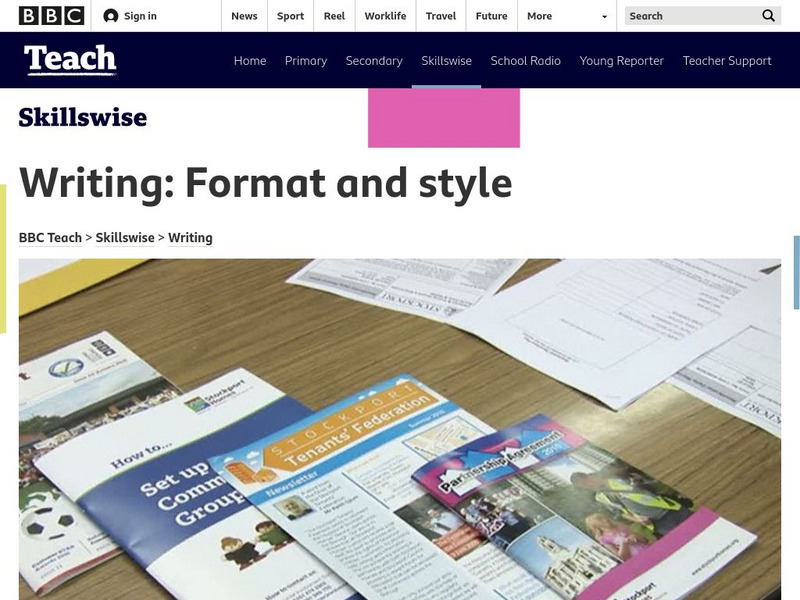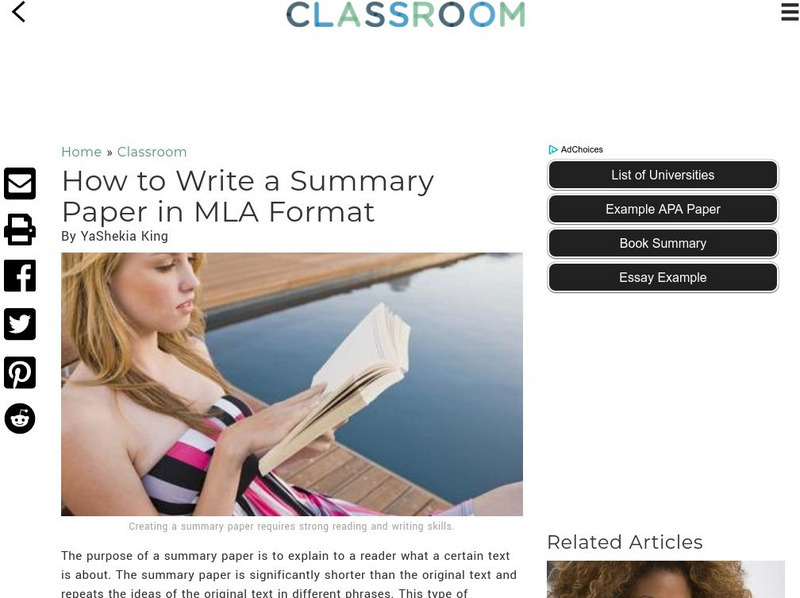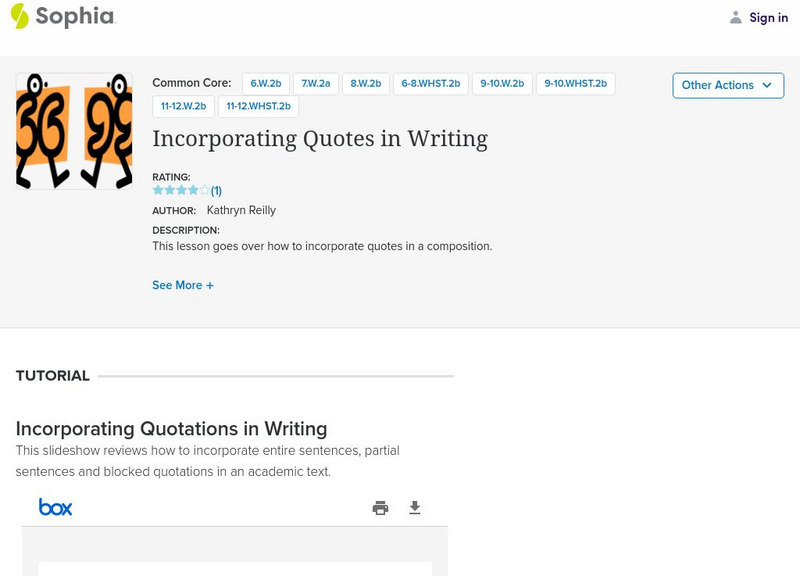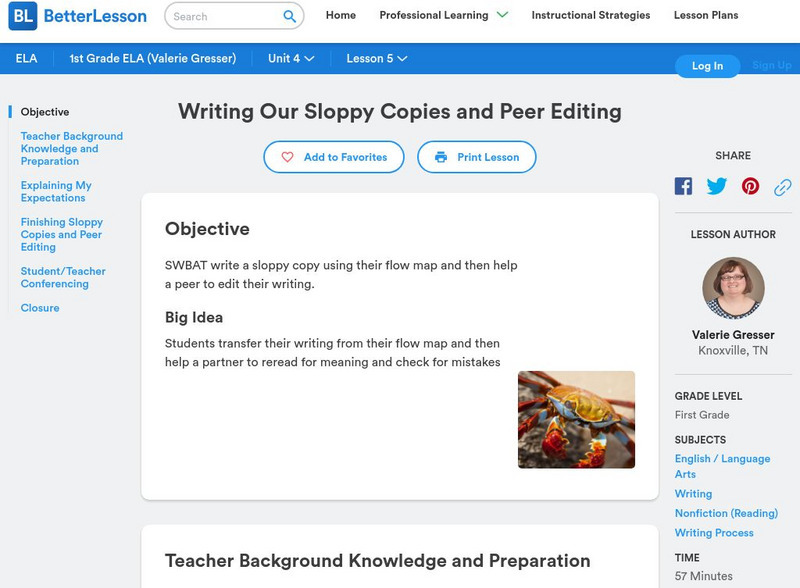Hi, what do you want to do?
EngageNY
TASC Transition Curriculum: Workshop 6
Is a college education necessary for success in today's world? The class investigates the question, along with others at the end of the sixth workshop in a 15-part series. The lesson has four parts with multiple activities and...
New York State Education Department
TASC Transition Curriculum: Workshop 11
You'll C-E-R a difference in classroom achievement after using a helpful instructional activity. Designed for economics, civics, government, and US history classes, participants practice using the CER model to craft arguments about...
Transforming Education
Growth Mindset Strategies
Help your students develop a growth mindset with a list of sample strategies for prioritizing efforts instead of results.Pupils learn how to embrace mistakes, set high expectations, and focus on process over product.
EngageNY
TASC Transition Curriculum: Workshop 8
Lights, camera, action! Math educators consider how to improve their instruction by examining a model of the five-practice problem-solving model involving a movie theater. Participants examine cognitive demand in relation to problem...
New York State Education Department
TASC Transition Curriculum: Workshop 4
Why is it important to use precise language? Participants explore this question in the fourth activity in a series of 15 on effective instruction. Perfect for all content areas, the activity promotes appropriate language choice through...
Transforming Education
Growth Mindset Toolkit
A nine-slide presentation provides educators with practical ways they can help young people develop a growth mindset, a key competency in social-emotional learning.
New York State Education Department
TASC Transition Curriculum: Workshop 5
Are video games sports? Pupils investigate this question as well as various nonfiction selections to learn more about claims and the support that defines them. All of the selections mimic the rigor on state tests and encourage close...
EngageNY
TASC Transition Curriculum: Workshop 12
How can opinions slant facts? Workshop participants learn how to examine primary and secondary sources and identify the author's point of view. They also examine how visual art impacts the meaning and rhetoric of sources. Full of...
Texas Education Agency
Texas Gateway: Teaching Persuasive Text: Writing Persuasive Essays
This resource explores instructional practices for persuasive essay writing in English language arts, mathematics, science, and social studies classes. It uses original content from the Texas Adolescent Literacy Academies: Focus on...
Georgia Department of Education
Ga Virtual Learning: Descriptive Writing: Similes, Metaphors, Cliches, Hyperbole
This lesson focuses on figurative language used in descriptive writing including similes, metaphors, cliches, hyperbole. It offers multiple links to websites pertaining to figurative language in descriptive and creative writing; an...
ReadWriteThink
Read Write Think: Writing Workshop: Helping Writers Choose and Focus on a Topic
Students engage in writing workshop, using a timeline to focus in on and write about a specific event.
Better Lesson
Better Lesson: Writing a Topic & Concluding Paragraph for the Essay
This lesson is a final step towards supporting young scholars to practice writing an informative/explanatory paragraph conveying complex ideas and presenting information clearly and accurately. Second-grade students can usually write a...
Texas Education Agency
Texas Gateway: Evaluate Tone in Various Media for Audiences and Purposes
This lesson will help you evaluate changes in formality and tone within printed texts written for specific audiences and purposes. It focuses on writing produced during the Great Depression. RL.9-10.4 Word choice, Tone
Texas Education Agency
Texas Gateway: Evaluate Tone in Various Media for Different Audiences & Purposes
This lesson will help you evaluate changes in formality and tone within printed texts written for specific audiences and purposes. It focuses on writing produced during the Great Depression.
The Write Place
Literacy Education Online: Avoiding Gender Bias in Pronouns
Essay that focuses on how to shift writing from biased language to non-gender specific writing. Five examples are given from various publications to show how to become unbiased in writing.
Georgia Department of Education
Ga Virtual Learning: Grammar/writing Ii: Introduction
This is an introduction to a Grammar and Writing unit. It focuses on a review of dependent and independent clauses, writing concise sentences, avoiding passive voice, formatting writing assignments, documenting sources using MLA...
University of North Carolina
University of North Carolina: Writing Center: Handouts: Evidence
What kinds of evidence best support the points you make in a paper? Where can you find the evidence you need? This handout answers all these questions and more, including the difference between primary and secondary sources. You'll also...
BBC
Bbc Skillswise: Writing: Format and Style
As part of the BBC's Skillswise unit, this site focuses on using various ways of writing for different purposes. For learning tools, the site includes a worksheet, a factsheet, and a quiz.
Grammarly
Grammarly Handbook: Writing a Draft
This page focuses on writing a first draft including getting all the information down in an organized manner without worrying about the grammar and mechanics. It discusses the advantages of using word processing programs which make it...
Leaf Group
E How: How to Write a Talking Points Paper
This article by Byron Walsh focuses on writing a talking points paper for a public speaker which consists of researched, accurate information provided in bulleted lists with follow up sentences on specific topics.
Leaf Group
E How: How to Write a Research Paper in Accounting
This article by Vaughnlea Leonard focuses on writing a research paper for an accounting class. The main differences from other research papers is choosing an appropriate topic and selecting sources written by accounting experts.
Leaf Group
Classroom: How to Write a Summary Paper in Mla Format
This article by YaShekia King focuses on writing a summary paper in MLA Style.
Sophia Learning
Sophia: Incorporating Quotes in Writing
This slideshow lesson focuses on how to incorporate quotes into writing. It explains the rules for using quotation marks, discusses how writers use quotation marks, and explains quotation etiquette with examples of single quotations and...
Better Lesson
Better Lesson: Writing Our Sloppy Copies and Peer Editing
Students will write a sloppy copy and help a peer to edit their writing. They will use a kid-friendly checklist (included)to help each other find their mistakes. Videos of students engaged in the lesson are provided, along with a...














